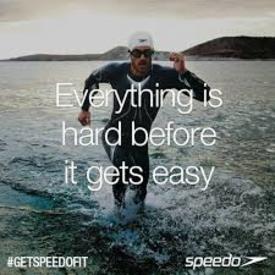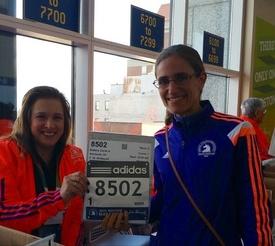Matt Fitzgerald - Racing Weight

jchite84
Posts: 467 Member
Has anybody tried his program? I'm reading the book now. I haven't gotten to the part where he lays out his nutrition plan, but I have a basic idea of how it works. I lost about 50 lbs on MFP the first go, but I tend to fluctuate a lot in the off season and it's getting harder and harder to take it back off to get down to a better performance weight. I also found that MFPs prescribed calorie restrictions left me pretty worn out during marathon training, even with eating back calories. This training round my biggest issue has been appetite management. Some days (read Most Days) I just can't seem to fill up. Racing Weight is supposed to address those issues, but it seems like the programs might not be exactly compatible. Thoughts?
0
Replies
-
I don't agree with racing weight and concept of hunger management. They are two distantly related things. Forget weight for a second. Your race training nutrition needs to be based on each day's training plan. If you have a long run, and you are eating like you would on a strength training or off day, then you might be alright that day in regards to hunger, but due to starving your body of the nutrients it needed, you will be starving the following day almost regardless of what you eat. This leads next to quality of food you are eating. You need to make sure you are getting the micro nutrients you need, not just macro. Now back to race weight. The concept of race weight is more about optimizing your speed. Therefore, using myself as an example, assuming my muscle strength doesn't change, my speed at 165lbs will be significantly faster than my speed at 190lbs. There is less weight I have to move, and assuming I have the same strength, I can push harder and use less energy to do so. Are you at race weight right now? If so, are you making sure you are at maintenance calories? Are you getting the proper type of nutrition pre and post workout, as well as during? Are you race training and trying to lose weight? What type of cross training are you doing? So many variables. Sorry for the book.0
-
Racing Weight is all about improving the quality of food you eat and dropping weight to perform better. I loved the book and highly recommend it. While I no longer actively track my DQS points, I pretty much know when I have had a high quality food day and when I have not!!! The book also covers nutrient timing, recovery nutrition, training quality, etc.0
-
I think there is a lot of sense in the general idea of the system. Common sense, really. The points are just a way to increase your usage of healthy, whole foods.
I feel better when I eat better, that is for sure. In fact, I may very well feel so beaten down right now not so much due to the increased mileage over the last few months (though that is a factor), but because over the last month I have not been eating as well as in the prior months. The trick for me (and for a few others) is maintaining that sort of eating for long periods. It can be a real struggle when pressed for time. I have been running so much I feel like I have no time to fix food along with everything else.
I honestly can not think of a better system to help keep you on track with eating better.
Since your question revolved more around weight loss I should add that I have not lost any weight since adapting this program at any point. But that is mostly due to starting this after I began marathon training and going into new record mileage territory month after month. The machine wants to be fed to reward me with the energy to run.0 -
Well, I finished the book this weekend. I like the idea of it and I am definitely planning on adopting some of the advice. I definitely feel @daj150 's criticisms. To answer some more questions - Not even close to race weight currently. The lightest I've ever raced was 200 lbs, right now I'm about 210. At 200 I was fast, but calorie restrictions left me tired, at that time I was not focusing on macros, just trying to eat clean and moderate portions and I took a multivitamin. MFP also had me at 1300 calories, which I don't think was sustainable. I was also doing triathlons and more strength training, so my overall composition was a lot better then. This year I'm working on an ultra, so I haven't had as much time for strength training or as much cross training. I try to go for at least one bike ride a week, but that's about it. For bodyfat percentage, I should probably be closer to 190 or even 180, though I'm not sure if that will ever happen. I fell into some bad habits, mostly "I've got 1000 extra calories today...ice cream anybody?". So, overall, I know what my problems are and how to fix them. Mostly what I took from the book was the nutrient timing (more carbs in the morning, more protein for dinner) and the idea of psychological vs. physical hunger. I tend to eat at the time that I eat regardless of how hungry I am. (Ugh, so many bad habits). So, I don't consider the cost of the book a waste, I'm taking away some advice and leaving some on the table. Life is an experiment, so I'm going to fiddle with some variables and see what happens! Thanks for the input guys.0
-
I've actually been meaning to check this out so this thread reminded me. I just read the intro to the quick start guide and it said it had a meal plan/exercise plan to follow. Is the book the same?
Do you have to follow the exercise plan? Or can you work it into your own training plan? I was planning on trying it after my race at the end of the month but I have a coach I would rather follow for off season rather than a generic plan.0 -
Also, reading reviews, a lot of people say that the book is incomplete and you need to purchase the quick start guide to really be able to do it. Can I or should I just buy the quick start guide?0
-
Yeah, I read the reviews about the book being "too technical" and forcing you to buy other books. I didn't get that at all. Racing Weight does not have a fully fleshed out exercise plan, just do endurance training at an 80/20 split (80% easy, 20% hard) and lift 2-3 times per week. He briefly mentions the quick start, which is just what to do if you are more than 20 lbs from your ideal weight or how to quick cut in between your off season and base training. But like the training plan, I didn't feel it really needed fully fleshed out for me. It was basically eat at a moderate deficit, do HIIT, and don't expect your A Sport (running, cycling, tri, etc) training to be great. The book gives you a lot of flexibility for how you approach eating and training. It seems compatible with just about any training plan. If you were a complete beginner and had never done much in the way of training or food management, then I'd say you might benefit from buying the quick start guide and the cook book. But most of the tips are really just expanded and fleshed out common sense stuff with studies to back it up and reasons why some traditional weight loss programs might not be the best for endurance athletes. I just started tracking my DQS along side MFP. I'm curious about the interplay between the score and calories. I bought the kindle version and I'd say it was worth the 9 dollars I paid for it.0
-
I am of the opinion that running and losing weight are not necessarily the BFFs we'd like them to be - especially if training for an endurance event. Yes, some weight can be lost while training for these, but I believe that most of the weight loss would/should occur before training for the event really kicks in. The goal of nutition while training for an event is most often times performance. We want to run fast, finish the race with a kick, get a PR, and recover quickly from our runs so we can get back out there and do it again. I think a small amount of weight loss can happen during training, but it's really more "fine-tuning", less than 10 pounds.0
-
Yeah, I read the reviews about the book being "too technical" and forcing you to buy other books. I didn't get that at all. Racing Weight does not have a fully fleshed out exercise plan, just do endurance training at an 80/20 split (80% easy, 20% hard) and lift 2-3 times per week. He briefly mentions the quick start, which is just what to do if you are more than 20 lbs from your ideal weight or how to quick cut in between your off season and base training. But like the training plan, I didn't feel it really needed fully fleshed out for me. It was basically eat at a moderate deficit, do HIIT, and don't expect your A Sport (running, cycling, tri, etc) training to be great. The book gives you a lot of flexibility for how you approach eating and training. It seems compatible with just about any training plan. If you were a complete beginner and had never done much in the way of training or food management, then I'd say you might benefit from buying the quick start guide and the cook book. But most of the tips are really just expanded and fleshed out common sense stuff with studies to back it up and reasons why some traditional weight loss programs might not be the best for endurance athletes. I just started tracking my DQS along side MFP. I'm curious about the interplay between the score and calories. I bought the kindle version and I'd say it was worth the 9 dollars I paid for it.
Thanks. I meant to respond before and forgot. Just saw the topic bumped.
I actually just finished reading the book last night. I plan to start playing around with it after my HIM this weekend.
I don't really get some of the complaints I read about it either. Hmm.0 -
I think the complaints come from people who (A) expected a structured menu or diet plan in the book or (B) didn't actually read it but draw their own conclusions based on what others have said.0
-
I have the quick start guide. I'll update to this thread as I read if anyone is interested.0
-
_Terrapin_ wrote: »I have the quick start guide. I'll update to this thread as I read if anyone is interested.
Thanks. I was debating buying that too.0 -
I have the book and read it. I agree with it but can't figure out the system to lose weight.
I will check out quick start from library.0 -
DavidMartinez2 wrote: »I think the complaints come from people who (A) expected a structured menu or diet plan in the book or (B) didn't actually read it but draw their own conclusions based on what others have said.
This.0 -
Okay, so a little update. Quick start guide he follows the book in terms of structuring the meal plan. He provides calorie content(not each food broken out) for 2,000/2,500/3,000 calories. So, Monday would look like:
2,000 cals he shows 582(29%) PROTEIN
Bagel w/ cream cheese & lox, OJ
Energy Bar
Chicken bean and veegie burrito, grapes
low fat yogurt w/ fruit
Salmon, brown rice and snow peas(1.5 servings)
To bounce this up to 3,000 for the same day
He pops the bagel line with an extra 1/2 serving
adds turkey jerky with the energy bar
doubles the lunch
Fruit smoothie replaces(low fat yogurt w/fruit)
dinner stays the same
Cherries for a late snack
I can see the simplicity in what he advocates. This is reminiscent of the P90X breakdown except they used color blocks for the various foods and MACROS. My problem with P90X was I had no idea calorically what the hell I was doing. Their guide provided too much disparity of calorie intake. With Matt's example above you can at least get pretty close to the numbers as he shows them.
It looks like he has 3 meals and 2 snacks each day. If you need a guide I'd say his is pretty darn good. He balances the fuel(fats and carbs) and has a fair amount of Protein for each day.
From the book on page 61 he uses a scoring quality for your intake. It's a pretty handy chart in terms of quantity and his scoring system for each group mirrors other diets where the quality of each food group and MACRO are rewarded. He also provides a table adaptation for vegans/vegetarian.
The table gives you points either positive or negative for different food items. Personally, I'll probably pick a week and go back to MFP and check the point system against my intake. Much of what I eat is thought out prior to the start of the day. I usually manage one train wreck a week and it seems to be after a longer training day. So, identifying the trends may not be the worst thing that happens.0
This discussion has been closed.








